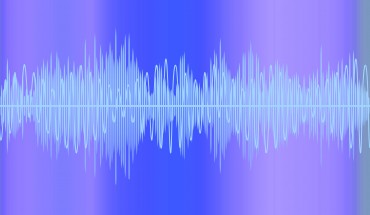A new survey has revealed the overwhelming lack of knowledge about the causes and symptoms of hiatus hernia and chronic acid reflux in the UK. These results come despite the fact that 1 in 3 people aged over 50 have hiatus hernia and 13 million people suffer from chronic acid reflux.
Hiatus hernia means that the top part of the stomach slides up into the chest cavity. Common symptoms include heartburn, chest pain and the feeling a lump in the throat. The symptoms that can increase the risk of a number of serious conditions, including swallowing problems that can cause food to get stuck in the throat, increases the risk of cell change and cancer, poorer dental and oral health. The mis-swallowing can also increase the risk of pneumonia.
When asked about the complications of leaving hiatus hernia untreated, over half (56%) of respondents could not identify a single complication from untreated hiatus hernia. Only 12% of respondents were aware that oesophagus cancer was one of the risks associated, despite it being the 7th most deadly cancer in the UK, leading to the death of 22 people in the UK every single day. Despite the serious health consequences of leaving it untreated, only 16.6% of men know what hiatus hernia was.
Whilst more people were aware of chronic acid reflux, very few people who were polled knew how to manage the condition despite it having a huge negative impact on their physical and mental health. 1 in 4 said it had forced them to change their daily routine, 1 in 5 people said that they had experienced depression or anxiety due to the condition. Only 11% of people know that acid reflux could be treated through muscular training.
Commenting on the findings, Ylvali Gerling, CEO of IQoro, said:
“This survey shows there is a long way to go in boosting public awareness about what hiatus hernia and chronic reflux is, and how it can be treated. I want people to know that these conditions aren’t embarrassing and can be managed without surgery or pharmacological treatments. Traditionally, reflux has been treated by a form of costly surgery called a ‘Nissen fundoplication’ or medicine known as a proton pump inhibitor (PPI) which reduces how much acid your stomach makes.
But IQoro works by training the muscles between the mouth and stomach that are used every time you swallow. Every time you swallow food or gulp water, 148 muscles transport the food or liquid down to the stomach safely. These muscles need training just like any other in our body. IQoro trains and strengthens the whole muscle chain to help them get stronger. Completely naturally and without medication”.
Case Study: Irene Hope, 70, a retired schoolteacher from Sheffield, began using IQoro in 2022.
“I had a persistent cough for many years, which led to me losing my voice in 2021 to the point where I could barely speak. My doctor diagnosed me with ‘silent reflux’. I told him I’d never had reflux in my life but he confirmed I had a malfunction with my vocal chords. I was prescribed with proton-pump inhibitors and speech therapy. I wasn’t comfortable taking PPIs due to the potential side effects, but a friend recommended IQoro as a natural remedy. Using a neuromuscular training device has changed my life – I can speak and sing. I don’t take anything other than naturally train the muscles in my body with IQoro.
I think there needs to be a broader campaign within the medical profession about the importance of natural neuromuscular training. Because I know that people are now asking GPs and I think it’s hit and miss whether they have heard about it or not. It is disappointing that it’s been accepted by NICE yet people still can’t access it from the NHS in the UK.”
- New lipid-based pathway discovered as key to memory formation - 25th June 2025
- Crucial link could explain how Alzheimer’s takes hold - 25th June 2025
- Understanding Your Mind Can Improve Daily Life - 25th June 2025







